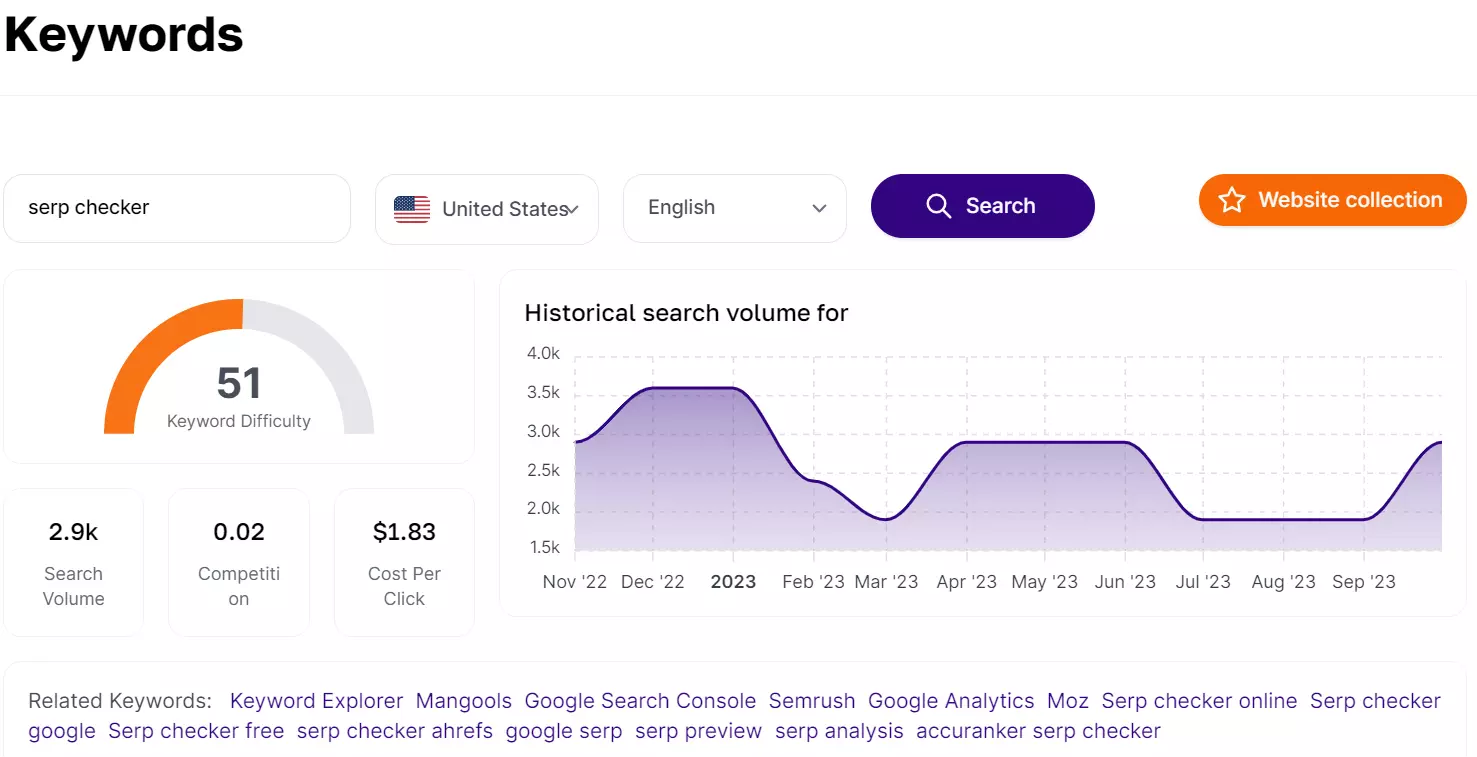
In the dynamic and complex landscape of business, the concept of a niche market has emerged as a pivotal element for companies seeking to thrive in an increasingly competitive environment. But what is a niche market exactly?
A niche market refers to a specialized, targetable segment of the market that is addressed by businesses to fulfill the specific needs, preferences, and demands of a particular group of customers.
This essay explores the intricacies of niche markets, examining their definition, characteristics, and the significance they hold for businesses in today's economy.
What is a Niche Market?
So what is a niche in marketing? A niche market is a smaller part of a larger market distinguished by specific demands, values, or identities.
Businesses focusing on niche markets can provide tailored products or services that meet the unique needs of consumers within their defined target audience.
These markets direct their efforts toward a particular audience sharing similar traits or characteristics among potential customers.
You Might Also Like: Best Niches for Affiliate Marketing
Characteristics of Niche Markets
Several defining characteristics distinguish niche markets from broader, more generic markets:
1. Specificity
Niche markets are highly specific and targeted. They hone in on a particular set of characteristics that differentiate the target audience from the broader market.
2. Specialization
Businesses operating in niche markets often specialize in providing unique products or services that are not readily available in the mass market.
This specialization helps them stand out and creates a competitive advantage.
3. Less Competition
Engaging in a niche market implies facing reduced or even minimal competition. Numerous companies or individuals often prefer catering to a broad customer base. By narrowing your focus, you provide a distinct product that removes numerous competitors from the consideration of your customers.
However, it's essential to acknowledge that there might be a smaller pool of customers seeking your particular product or service. Therefore, it becomes crucial to select a niche market that still maintains a sufficient audience to support your business endeavors.
4. Increased Brand Loyalty
Niche marketing empowers both individuals and businesses to enhance brand loyalty. Interacting with a more focused audience makes it simpler to cultivate prospects and establish meaningful connections.
Your audience will recognize that you grasp their unique preferences, fostering a perception of you as a genuine collaborator rather than merely a vendor solely concerned with financial transactions.
5. Flexibility
Niche markets offer businesses the flexibility to adapt quickly to changing consumer preferences and market trends. This agility is a crucial factor in maintaining relevance and competitiveness.
Benefits of a Niche Market for Businesses
The pursuit of a niche market strategy can yield several strategic advantages for businesses:
Brand Differentiation
Standing out in a crowded marketplace is a perpetual challenge for businesses.
Niche markets provide an opportunity for brands to differentiate themselves by offering something distinct and exclusive. This distinctiveness not only attracts customers but also builds brand loyalty.
Targeted Marketing
Niche markets enable businesses to tailor their marketing efforts to a specific audience, resulting in more efficient and cost-effective campaigns.
By understanding the unique needs of their target market, businesses can create compelling messages that resonate with consumers.
Increased Profit Margins
While niche markets may not have the sheer volume of mass markets, they often offer higher profit margins.
Consumers in niche markets are often willing to pay a premium for products or services that precisely meet their specialized needs.
Customer Loyalty and Advocacy
Building strong relationships with a specific customer segment fosters loyalty and advocacy.
Satisfied customers in niche markets become brand ambassadors, spreading positive word-of-mouth and contributing to organic growth.
Adaptability to Market Changes
Niche-focused businesses are generally more adaptable to changes in market conditions.
Their smaller scale allows for quicker adjustments to consumer preferences, technological advancements, or economic shifts.
Are you looking for a niche finder tool? Luckily, with Keywords Niche, you can easily find low-difficulty keywords with high search volume, which will help you find the ideal niche market!

6 Popular Niche Market Examples
Several successful businesses have thrived by embracing a niche market strategy:
Tesla
While electric cars were once considered a niche market, Tesla successfully positioned itself as a pioneer in the industry. By focusing on high-performance electric vehicles, Tesla attracted a niche market of environmentally conscious consumers and car enthusiasts.
Lululemon
Specializing in high-quality yoga and athletic wear, Lululemon carved out a niche market among fitness enthusiasts who prioritize comfort, style, and performance in their activewear.
Do-it-yourself
While some opt to enlist experts for specific tasks, others favor taking matters into their own hands. Enterprises catering to the niche market of do-it-yourself (DIY) enthusiasts provide customers with the tools or expertise necessary to complete a task.
For instance, if you observe that a specific home product typically necessitates professional assembly, you can develop comprehensive instructions or how-to videos elucidating the process for the DIY market.
Conscious consumers
Sustainability is an expansive subject, with numerous consumers seeking ways to minimize their environmental footprint and adopt a more conscientious lifestyle. Products and services aligning with this ethos range from cruelty-free cosmetics to embracing a Danish hygiene-inspired way of life.
The previous concept of the "green" space often involved companies making modest donations to organizations supporting environmental causes. However, today's dedicated customer base is growingly interested in the entire life cycle of products – from manufacturing and storage to packaging and usage.
This trend presents a compelling niche market opportunity where the heightened emphasis on quality frequently corresponds with an increased price point.
Gamers
Traditionally, gaming has been perceived as a niche market primarily dominated by a younger male demographic. However, the pandemic has disrupted this notion, revealing diverse customer personas that delve into specific sub-niches.
Women gamers, middle-aged gamers, and even mom gamers have emerged as distinct segments within this evolving landscape.
Moreover, this niche industry can be further dissected based on the types of games or even specific games themselves.
For instance, someone who enjoys constructing homes and communities on EA's The Sims might not find the same satisfaction in an all-night Fortnite session.
This diversity within the gaming community presents a vast customer base with unique preferences and interests that can be cultivated and catered to.
Remote workers
The landscape of remote work, once a relatively small and steadily growing niche, underwent a significant transformation in 2020.
The niche of remote work businesses is currently experiencing unprecedented growth. Despite the increasing competition, a vast array of opportunities still exists.
From individuals navigating their first-time work-from-home situations to those who have embraced this trend and seek ways to enhance the quality of their work, overall experience, and home office setup, this domain has become immensely popular.
Whether your focus is assisting people in creating the ideal "cloffice" (a closet-turned-office, a burgeoning trend) or developing the perfect work-from-home productivity app, the market has expanded more than ever before.
Challenges and Risks of Niche Markets
While niche markets offer numerous advantages, they also present challenges and risks for businesses:
Limited Scale
Niche markets are inherently smaller in scale compared to mass markets. This can limit the growth potential for businesses that rely solely on a niche market strategy.
Dependency on Market Trends
Niche markets may be more susceptible to changes in consumer trends or economic conditions. Businesses operating in niche markets must stay vigilant and adapt quickly to shifts in the market landscape.
Potential Imitation
Success in a niche market may attract imitators, leading to increased competition. Businesses must continually innovate to maintain their competitive edge.
Conclusion: What is Niche Marketing
In conclusion, a niche market represents a specialized and targeted segment within the broader market, catering to the unique needs and preferences of a specific group of consumers.
Businesses that strategically embrace niche market strategies stand to gain advantages such as targeted marketing, brand differentiation, increased profit margins, and customer loyalty.
While challenges and risks exist, the rewards for successfully navigating a niche market can be substantial.
As the business landscape continues to evolve, understanding and effectively tapping into niche markets will remain a crucial aspect of sustainable growth and success for businesses worldwide.

